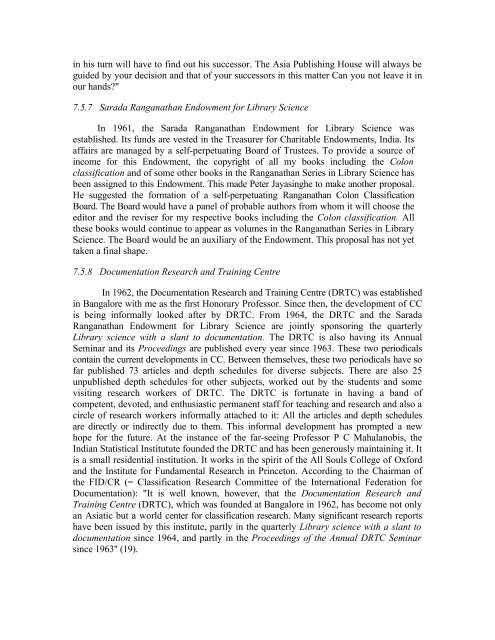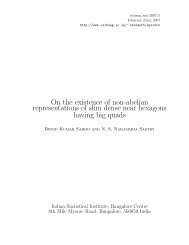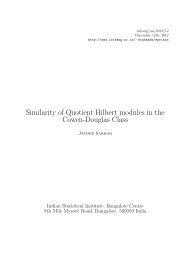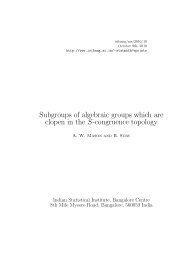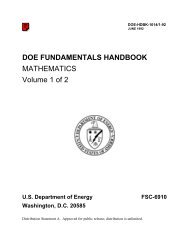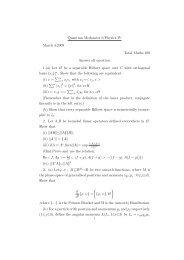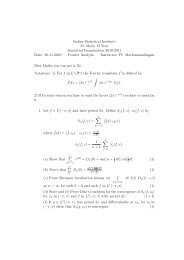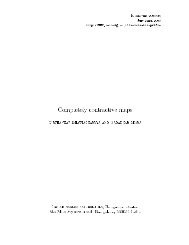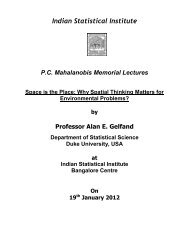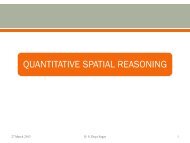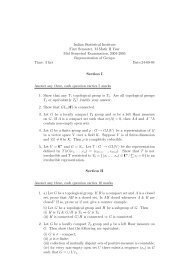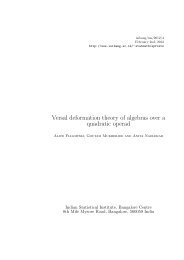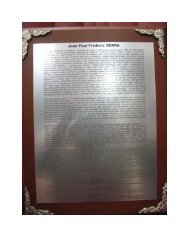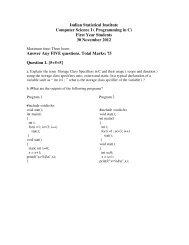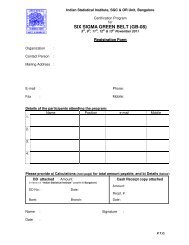CHOICE OF SCHEME FOR CLASSIFICATION - Indian Statistical ...
CHOICE OF SCHEME FOR CLASSIFICATION - Indian Statistical ...
CHOICE OF SCHEME FOR CLASSIFICATION - Indian Statistical ...
You also want an ePaper? Increase the reach of your titles
YUMPU automatically turns print PDFs into web optimized ePapers that Google loves.
in his turn will have to find out his successor. The Asia Publishing House will always be<br />
guided by your decision and that of your successors in this matter Can you not leave it in<br />
our hands?"<br />
7.5.7 Sarada Ranganathan Endowment for Library Science<br />
In 1961, the Sarada Ranganathan Endowment for Library Science was<br />
established. Its funds are vested in the Treasurer for Charitable Endowments, India. Its<br />
affairs are managed by a self-perpetuating Board of Trustees. To provide a source of<br />
income for this Endowment, the copyright of all my books including the Colon<br />
classification and of some other books in the Ranganathan Series in Library Science has<br />
been assigned to this Endowment. This made Peter Jayasinghe to make another proposal.<br />
He suggested the formation of a self-perpetuating Ranganathan Colon Classification<br />
Board. The Board would have a panel of probable authors from whom it will choose the<br />
editor and the reviser for my respective books including the Colon classification. All<br />
these books would continue to appear as volumes in the Ranganathan Series in Library<br />
Science. The Board would be an auxiliary of the Endowment. This proposal has not yet<br />
taken a final shape.<br />
7.5.8 Documentation Research and Training Centre<br />
In 1962, the Documentation Research and Training Centre (DRTC) was established<br />
in Bangalore with me as the first Honorary Professor. Since then, the development of CC<br />
is being informally looked after by DRTC. From 1964, the DRTC and the Sarada<br />
Ranganathan Endowment for Library Science are jointly sponsoring the quarterly<br />
Library science with a slant to documentation. The DRTC is also having its Annual<br />
Seminar and its Proceedings are published every year since 1963. These two periodicals<br />
contain the current developments in CC. Between themselves, these two periodicals have so<br />
far published 73 articles and depth schedules for diverse subjects. There are also 25<br />
unpublished depth schedules for other subjects, worked out by the students and some<br />
visiting research workers of DRTC. The DRTC is fortunate in having a band of<br />
competent, devoted, and enthusiastic permanent staff for teaching and research and also a<br />
circle of research workers informally attached to it: All the articles and depth schedules<br />
are directly or indirectly due to them. This informal development has prompted a new<br />
hope for the future. At the instance of the far-seeing Professor P C Mahalanobis, the<br />
<strong>Indian</strong> <strong>Statistical</strong> Institutute founded the DRTC and has been generously maintaining it. It<br />
is a small residential institution. It works in the spirit of the All Souls College of Oxford<br />
and the Institute for Fundamental Research in Princeton. According to the Chairman of<br />
the FID/CR (= Classification Research Committee of the International Federation for<br />
Documentation): "It is well known, however, that the Documentation Research and<br />
Training Centre (DRTC), which was founded at Bangalore in 1962, has become not only<br />
an Asiatic but a world center for classification research. Many significant research reports<br />
have been issued by this institute, partly in the quarterly Library science with a slant to<br />
documentation since 1964, and partly in the Proceedings of the Annual DRTC Seminar<br />
since 1963" (19).


